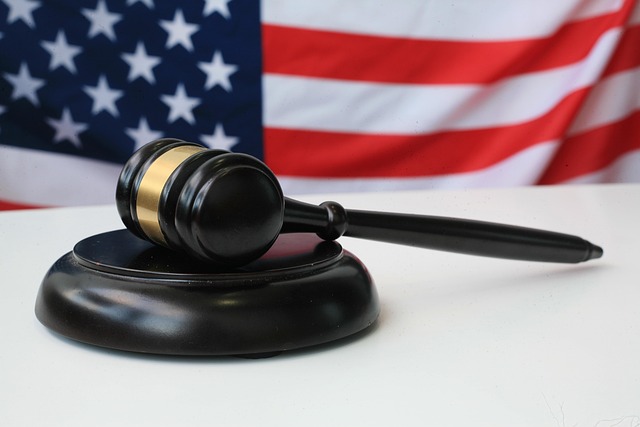Navigating regulatory compliance in legal proceedings presents significant challenges for both corporations and individuals, demanding a deep understanding of evolving legal landscapes and intricate rules. Keeping pace with dynamic regulations, particularly during jury trials, is crucial for securing favorable verdicts and demonstrating fairness. The process of jury selection, heavily influenced by cultural, demographic, and societal factors, poses unique obstacles, such as bias and representation issues. Effective strategies involve diversifying jury pools, fostering inclusive environments, addressing biases, and tailoring evidence presentation and case law research to each case's context. Case studies from tech and pharmaceuticals illustrate how these challenges can be turned into opportunities for growth and innovation, demonstrating that proactive navigation leads to transformative outcomes.
In the intricate landscape of legal proceedings, regulatory compliance issues play a pivotal role in shaping trial outcomes. This comprehensive article explores the multifaceted challenges faced during jury selection, delving into the discovery of bias and promotion of diversity. We examine how cultural and demographic factors influence jury decisions, highlighting the need for strategic legal approaches to overcome barriers. Through real-world case studies, we illustrate successful navigation of complex regulatory compliances, offering valuable insights for professionals navigating today’s intricate legal environment.
- Understanding Regulatory Compliance Issues: A Comprehensive Overview
- Challenges in Jury Selection: Uncovering Bias and Ensuring Diversity
- The Impact of Cultural and Demographic Factors on Jury Decisions
- Legal Strategies to Overcome Compliance Barriers During Trials
- Case Studies: Success Stories of Navigating Complex Regulatory Compliances
Understanding Regulatory Compliance Issues: A Comprehensive Overview

Navigating Regulatory Compliance Issues is a complex task that presents unique challenges for both corporate and individual clients. These issues encompass a wide array of legal and operational aspects, demanding a thorough understanding of ever-evolving regulatory landscapes. The process involves deciphering intricate rules and guidelines set forth by governing bodies to ensure businesses and individuals operate within legally defined boundaries.
One of the significant hurdles is managing the dynamic nature of regulations, which frequently change in response to societal shifts, technological advancements, or economic fluctuations. This requires constant vigilance and proactive measures to stay ahead of compliance requirements. Moreover, ensuring adherence to these regulations during jury trials can be a winning challenging defense verdict factor, as it demonstrates fairness, transparency, and respect for the legal process—all crucial elements in building a robust case strategy.
Challenges in Jury Selection: Uncovering Bias and Ensuring Diversity

The process of jury selection is a complex task, riddled with challenges that can significantly impact the outcome of any legal case. One of the primary concerns lies in uncovering potential biases and ensuring a diverse pool of jurors. In today’s society, where issues of fairness and representation are at the forefront, achieving an unbiased and representative jury is more crucial than ever. The challenges faced during jury selection require a meticulous approach to identify and mitigate any form of bias.
An unprecedented track record in successful general criminal defense strategies has proven that winning challenging defense verdicts is achievable. However, it necessitates a thorough understanding of the community and a willingness to adapt selection methods accordingly. By employing innovative techniques and staying attuned to societal changes, legal professionals can navigate these challenges effectively. This includes diversifying jury pools, encouraging open discussions on potential biases, and fostering an environment where every juror feels heard and valued.
The Impact of Cultural and Demographic Factors on Jury Decisions

Cultural and demographic factors play a significant role in shaping jury decisions, adding complex layers to the already intricate process of justice. Juries, as a reflection of society, bring diverse perspectives and experiences to courtrooms, which can both enhance and present challenges during trial proceedings. The impact of these factors is profound, as they influence how jurors interpret evidence, evaluate witness testimonies, and ultimately render verdicts.
Understanding the cultural backgrounds, racial identities, and demographic shifts within a community is essential for attorneys navigating the complexities of jury selection. These considerations are not merely about ensuring a representative jury but also addressing potential biases and preconceptions that could hinder a fair trial. Effective strategies to avoid indictment or secure winning challenging defense verdicts often involve recognizing and accounting for these cultural nuances, thereby fostering an environment conducive to impartial judgment and reaching just outcomes for all parties involved.
Legal Strategies to Overcome Compliance Barriers During Trials

Navigating regulatory compliance barriers during jury trials can pose significant challenges to businesses, particularly when facing complex legal landscapes and stringent rules. To overcome these hurdles, strategic planning is paramount. One key approach involves understanding the nuances of each case, as every regulatory violation has its own unique context and potential implications. Legal teams must thoroughly assess the facts, identify relevant regulations, and devise tailored strategies that address specific challenges faced during jury selection.
Effective legal strategies may include robust evidence presentation to educate jurors on industry standards, expert testimony to clarify complex regulatory matters, and meticulous case law research to support arguments. Moreover, building strong relationships with jurors can be crucial in winning challenging defense verdicts. By employing these tactics, businesses can enhance their chances of achieving favorable outcomes, ensuring compliance with respective business regulations while navigating the intricacies of jury trials.
Case Studies: Success Stories of Navigating Complex Regulatory Compliances

In the complex landscape of regulatory compliance, many organizations find themselves navigating a labyrinthine web of laws and standards. However, successful navigation isn’t merely about avoiding punishment; it’s about transforming challenges into opportunities. Case studies from various industries offer vivid examples of this metamorphosis. For instance, consider a tech company that faced stringent data privacy regulations. Instead of viewing these as constraints, they leveraged them to enhance their product offerings, creating a more secure and user-friendly experience that set them apart in the market.
Another inspiring tale involves a pharmaceutical firm grappling with regulatory hurdles during clinical trials. By adopting transparent practices and proactive communication with regulatory bodies, they not only avoided indictment but also gained valuable insights into improving trial designs. This not only ensured compliance but also led to more efficient and effective drug development processes, showcasing that addressing challenges head-on can result in innovative solutions and enhanced reputational standing within the general criminal defense landscape.
In navigating regulatory compliance issues, understanding the intricate challenges faced during jury selection is paramount. By recognizing and addressing biases and promoting diversity, we can ensure fair and impartial juries. Incorporating cultural and demographic awareness into trial strategies further strengthens fairness. The case studies presented demonstrate that with proactive legal approaches, it’s possible to overcome barriers and achieve successful outcomes, even in complex regulatory environments. This comprehensive overview highlights the importance of continuous vigilance and innovation in maintaining justice and integrity within our legal systems.






